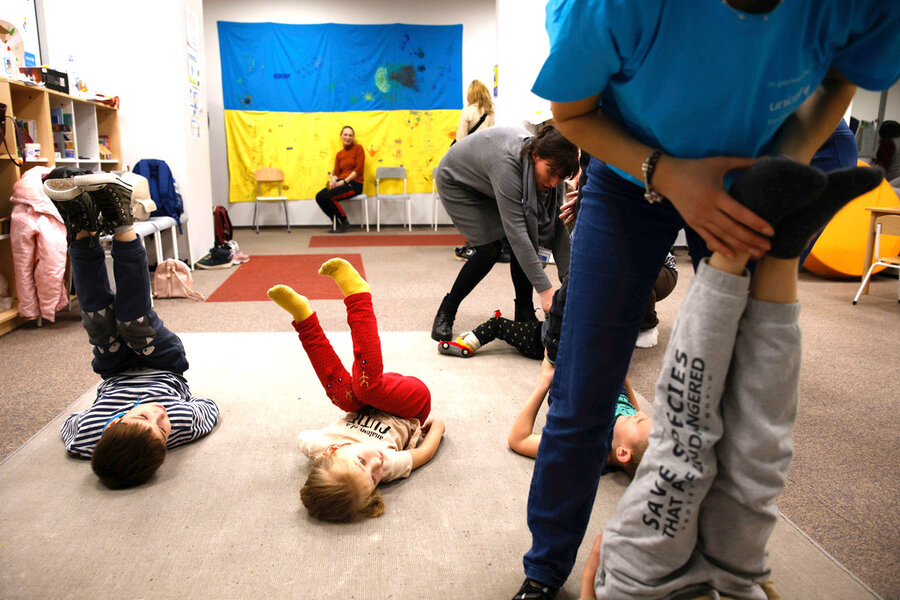Of homelands lost and home found
Close to 4% of people worldwide live in countries other than where they were born. That represents an unprecedented scale of human movement across borders and continents – enough to make up the fourth-largest country by population if banded together. Here is one migrant story you might not have heard.
In Poland, Turkey, and the Czech Republic, Ukrainians fleeing war have organized weekly events to clean the streets and public parks in the towns that have taken them in. These acts of gratitude are based on a Ukrainian custom of giving time freely to better the community. In some cities, locals have joined in and new friendships have been formed.
“By cleaning up the garbage, we want to say ‘thank you,’” Lena Bondarenko told Gazeta Wyborcza, a newspaper in the Polish town of Poznán. “Even in this symbolic way, we want to show the whole city of Poznán that we are grateful to you. I never imagined you could be so hospitable. My voice breaks.”
The currents of migration have at times stirred unease in societies that fear their norms and identities are being changed. But the arrival of foreigners is also forming eddies of hospitality and gratitude. In the United States, welcoming strangers is at the heart of the annual Thanksgiving holiday. In his Thanksgiving Proclamation of 1795, President George Washington urged his fellow citizens to pray that God would “render this country more and more a safe and propitious asylum for the unfortunate of other countries.”
That ideal was rooted in a conviction, echoed by presidents from then to now, that the nation ought to show gratitude for peace and prosperity through selfless devotion to the welfare of others. Our duty to God, President Theodore Roosevelt wrote in his 1907 Thanksgiving Proclamation, requires “the virtues that tell for gentleness and tenderness, for loving kindness and forbearance, one toward another.”
Gratitude for the skills that migrants bring may be causing a subtle shift in societies with deeply rooted definitions of national identity. In Germany, France, and Britain, according to a 2021 Pew survey, fewer people are insisting on traditional markers of belonging – such as ethnicity, being born in the country, being Christian, or speaking the national language. The study found that citizens are also “more likely to believe that migrants want to adopt [their] customs and ways of life.”
In the U.S., meanwhile, 78% of Americans approved of “allowing up to 100,000” Ukrainian refugees into the country after the Russian invasion. “This is the highest level of U.S. public support for admitting refugees that Gallup has found in its polling on various refugee situations since 1939,” the pollster noted.
For many Christians, this mix of hospitality and gratitude is not an end in itself. Writing to the Corinthians, Paul stated, “All things are for your sakes, that the abundant grace might through the thanksgiving of many redound to the glory of God.” In a world being reshaped by people fleeing their homelands, new bonds of affection are being forged, creating a higher meaning of home as a spiritual belonging.







